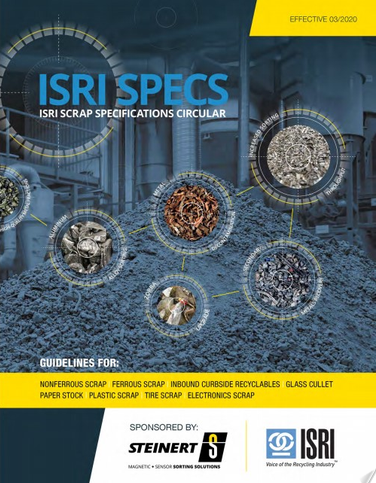In early March, a Malaysia-based cargo inspection and certification service, SIRIM QAS International Sdn.Bhd., presented new draft guidelines on scrap imports that may indicate stricter regulations on ferrous and nonferrous metals imports. ISRI submitted comments on the guidelines to SIRIM QAS on March 9. Since then, SIRIM QAS also released guidelines for paper imports.
According to ISRI, these guidelines are not set in stone, but rather offer a window into what the Malaysian government may be contemplating in terms of contamination tolerance and types of grades allowed for import. “It looks like they’re testing the waters,” says Adina Renee Adler, ISRI’s vice president of advocacy.
The guidelines are strict and lack necessary information for importers. All shipments would require both a pre- and post-shipment inspection, but the guidelines don’t address how to handle a situation where a pre-shipment inspection determines compliance, but the post-shipment inspection is rejected. The guidelines prohibit importing metal scrap in “crushed form” but doesn’t clarify whether “crushed” refers to shredded or baled scrap.
ISRI submitted comments asking for additional clarity and providing recommendations. It questioned requiring both pre- and post-shipment inspections. Inspections cost time and money, so requiring two inspections for each shipment would be “impairing the competitiveness of Malaysia’s manufacturers as compared to their international competitors,” says ISRI. One inspection would be enough, “if inspectors are properly trained and information shared appropriately,” ISRI notes.
ISRI questioned prohibiting “crushed” material—noting crushed, or shredded, material is valuable and “consists almost entirely of metal.” ISRI also highlighted mixed metals are important to manufacturers and recommended clarifying the inspection procedure for such mixed commodities, “allow[ing] for such commodities to be made available to manufacturers in Malaysia.”
ISRI referred SIRIM QAS to the ISRI Scrap Specifications Circulator, the internationally used guidelines for buying and selling scrap commodities. “[The ISRI specifications] were developed in an open process with input from manufacturers, recyclers, and suppliers,” says Adler. “It reflects what is possible in the international market.” ISRI recommended using the specifications to confirm compliance with criteria for imported material, including acceptable limits on non-specification material. “It is impossible to be absolutely free from plastics or other ‘scheduled wastes,’” says ISRI. “Consideration should be made if the importer can dispose of off-specification materials in an environmentally sound manner.”
When ISRI and its Malaysian partners brought comments to SIRIM QAS, the company seemed amenable to make changes. “When we asked why crushed scrap was banned when shredders are among the most efficient process for managing scrap, [SIRIM QAS] said it was reconsidering the ban,” says Adler. “When we said you can’t have a zero tolerance for all non-metallic materials, it’s not only impossible but also cuts off manufacturers from critical feedstock, [SIRIM QAS] said it would reconsider that too.”
But part of the issue lies with SIRIM QAS itself. It’s unclear whether it’s a government agency or a private commercial company that would benefit from conducting these inspections. When asked about regulations behind the guidelines, SIRIM QAS indicated the regulations are being finalized, so it’s unclear whether a legal entity backs them up. What’s more, SIRIM QAS recently released guidelines for the inspection of recovered paper, “and within that is a ban on mixed paper,” says Adler. With paper joining ferrous and nonferrous metals, it’s even more imperative to get clear answers from Malaysian government officials.
However, COVID-19 travel restrictions mean ISRI staff can’t meet with Malaysian government officials in person. “[The guidelines] are not final, which is good … but I can’t get on a plane and discuss things face-to-face,” says Adler. In 2019, she traveled to Malaysia to meet with government officials about the ISRI specifications. The officials seemed interested in using them as a reference guide, but the pandemic kept her from traveling back to continue those conversations. Since then, Adler’s tried using creative channels such as WhatsApp to contact government officials but hasn’t received a response. “Without the pandemic I’d get on a plane, go to the capital, and sit down with government officials to talk things over,” she says.
Adler hopes the U.S. embassy in Malaysia will help ISRI connect with government officials. The new U.S. Ambassador to Malaysia, Brian D. McFeeters, has identified that the U.S. has a trade deficit with Malaysia and wants to rectify it. “Scrap could be a way to narrow the trade deficit, but we need a direct dialogue with a government agency,” says Adler. “Hopefully the U.S. embassy can facilitate that discussion.”
Additionally, Adler has been invited to virtually brief SIRIM QAS further about specifications for metal and paper on March 24. “It is a great opportunity to keep advocating for a rational scrap import policy,” she says.
Stay up to date on trade issues affecting recycling by attending Trade in 2021 and Beyond: The Biden Administration’s Policy for Jobs, Economic Recovery and Circular Economy, a session that will be held at ISRI2021, ISRI’s virtual convention, from 2:45 p.m. to 3:30 p.m. EDT on Thursday, April 29. Click here to register for ISRI2021.
Additional Resources













